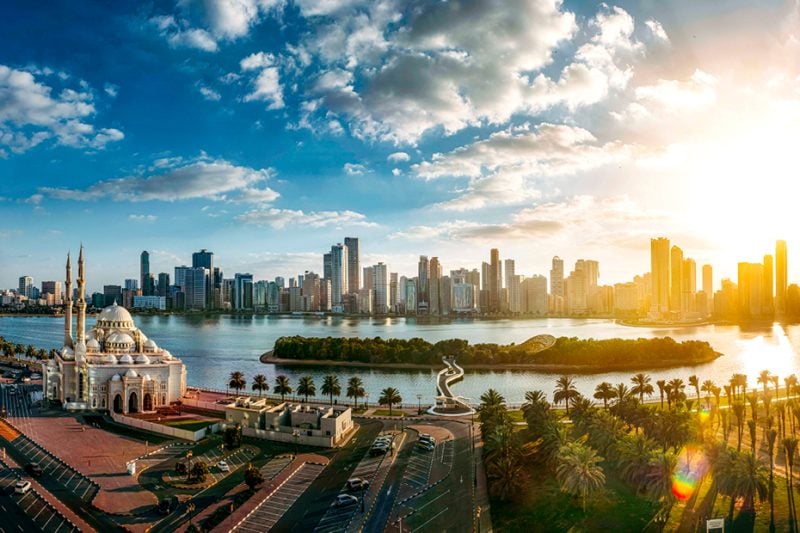The UAE’s real estate sector presents multiple avenues for success, but before entering the market investors must weigh various aspects based on past and present growth patterns as well as future prospects
The UAE has become one of the most desired destinations for international real estate investors, with its strategic location, booming economy and investor-friendly policies.
Real Estate landscape
The nation’s real estate sector currently stands as a major driver of GDP. Forecasts predict that the sector was at Dhs300bn by the end of 2023.
Investing in the UAE’s property market presents a compelling opportunity, considering the attractive incentives offered by the country to investors. These include provisions to purchase a property in Dubai within 24 to 48 hours, the UAE’s 10-year golden visa programme and the government’s spontaneous risk mitigation strategies.
The UAE’s real estate sector presents myriad avenues for success, but before entering the market investors need to weigh its various aspects based on past and present growth patterns as well as future prospects.
Navigating the evolving market
Investors should conduct comprehensive research before entering into any venture and here are the broad frameworks to work with.
Which emirate?
One of the first steps for investors in the country is choosing the right emirate. Each emirate has its distinct market landscape, which offers different growth prospects and Return on Investment (ROI). For instance, Dubai and Abu Dhabi, two prominent cities in the region, each offer distinctive opportunities.
While Dubai is characterised by higher property prices, reflecting its status as a global hub for business and luxury, at the same time Abu Dhabi presents a market with comparatively lower prices, making it an attractive prospect for those seeking more cost-effective real estate investments. Similarly, Sharjah offers a range of pocket-friendly options for families, big and small.
Is the price right?
Another feature of the UAE’s real estate sector is diversity in price range and investors must gain broad knowledge on current market trends like price fluctuations and growth potential across different emirates.
During the second quarter of 2023, Dubai’s residential real estate market witnessed a substantial surge in both sales volume and value, boasting over 30,000 property transactions and an aggregate sale value exceeding Dhs91bn. The figures indicate Dubai has had an outstanding performance in the second quarter, showcasing a remarkable 35 per cent uptick in transactions and an impressive 54 per cent surge in sales value when compared to the corresponding period in 2022.
This indicates that demand is high and will continue to remain so as project deliveries are staggered well into 2025 and 2026. The demand has added a premium to prices and hence shopping across multiple neighbourhoods, emirates, and developments will offer a fuller picture of the investment opportunities available.
Apart from the investment made in a property, a perfect budget strategy should also consider extra expenses like registration fees, legal expenses and property management costs. By creating a well-structured budget investor can easily avoid many unprecedented financial pitfalls and ensure efficient financial decision-making.
Location, location, location
The diverse property types and their neighbourhoods can also sometimes pose a challenge for investors to make the right decision. Making real estate investment decisions is crucial to set a practical budget management strategy and choose a location accordingly. For example, while Dubai may amaze with its opulence, it comes at a premium cost that everyone cannot afford.
For those seeking to lead a luxurious life affordably, Al Nahda Sharjah can be an ideal choice, as it offers more budget-friendly alternatives.
For investors seeking long-term growth, Ras Al Khaimah’s planned infrastructure, and hospitality projects, which are expected to bear fruition in the later half of the decade, is a definite consideration.
Understanding the laws
Investing in a rapidly evolving real estate market like the UAE requires more than just a keen eye for trending real estate opportunities and budget. In order to navigate the intricacies of the UAE market, a comprehensive knowledge of the local rules and regulations is required, which can vary in each emirate.
From property ownership laws and rental agreements to residency requirements and rights and responsibilities of an investor, one must explore various legal aspects before delving into the market.
A strong grasp of the legal landscape of UAE that governs every real estate transaction can help make informed decisions and unlock the full potential of the investment.
Finally, as the market evolves to integrate rapid economic, social and technological changes, thorough research and strategic planning can be the instrument to ensuring profitable and resilient investments.






